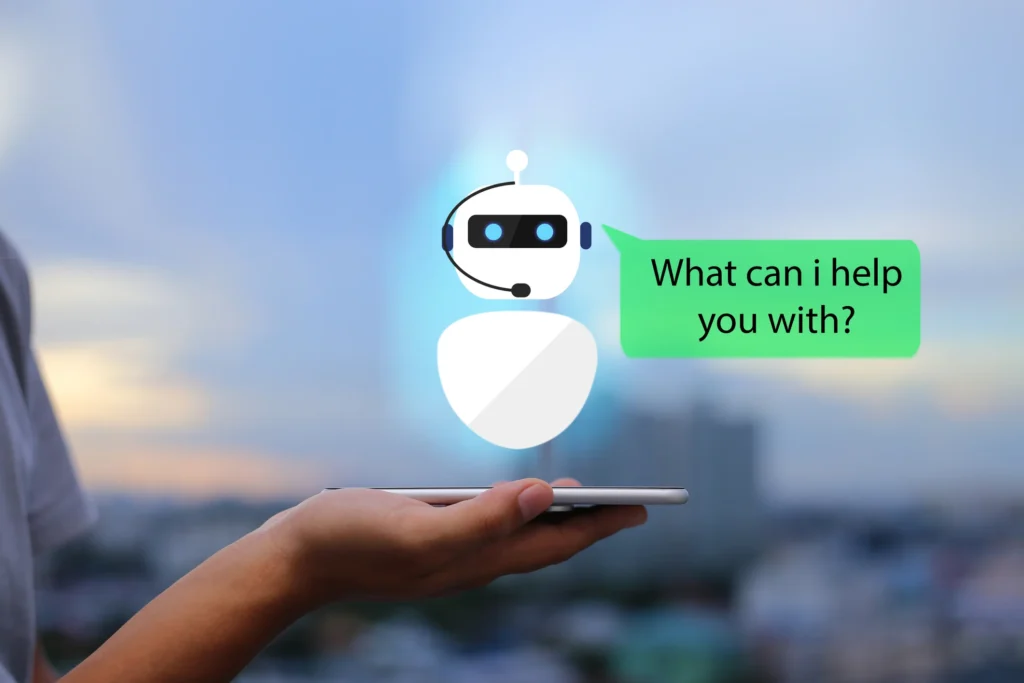Marketers are always looking for innovative ways to increase efficiency, engage customers, and grow businesses in the fast pace of modern digital landscapes. Transformatively impactful tools have emerged in the form of AI agents that exploit machine learning capabilities in data analytics and automation to reshape communication between business and audience, making marketing more intelligent, personalized, and outcomes-driven.
Let’s head into the various ways AI agents are revolutionizing digital marketing and turning it into an intelligent ecosystem.
Table of Contents
ToggleUnderstanding AI Agents in Digital Marketing

AI agents are intelligent systems that can manage marketing tasks independently, learn from the behavior of users, and adapt to new information. The agent algorithms and actions go beyond simple automation; instead, they interpret enormous datasets, make decisions on analytics, and even predict future trends. Unlike conventional marketing tools, AI agents continually refine their processes, thus being indispensable to the creation of targeted and effective campaigns.
For example, an AI agent is managing an e-commerce platform and analyzing the customer preferences. This agent could deduce the purchasing patterns and suggest products to individual users. That adaptability allows businesses to deliver experiences that fit the needs of the user, enhancing satisfaction and loyalty to customers.
Personalization is no longer an option but an absolute necessity for digital marketing. AI agents significantly do very well in personalizing customer interaction through data about their browsing habits, purchase history, and activity on social media sites. These insights help formulate marketing messages tailored to individual customers’ needs.
Think of receiving an email recommending a book that is similar to the one you just purchased with a discount on complementary items. Such activity is not by coincidence. It is the work of a clever AI agent which understands your tastes and proactively delivers value. Personalization is what improves the customer experience, triggers engagement and retention, and, of course, yields increased revenue.
Transforming Decision-Making with Predictive Analytics

AI agents empower marketers to make data-driven decisions through predictive analytics. By analyzing historical data, these systems forecast trends, customer behavior, and campaign outcomes. This foresight enables businesses to allocate resources efficiently and stay ahead of market changes.
For instance, when a retailer company adopts an AI agent, it can predict an upsurge in demand for winter clothing from earlier years’ data and observation of weather patterns. This way, the retailer company optimizes its stock, organizes marketing campaigns, and prepares for the ensuing season rush, thus maximizing gains.
Predictive analytics also reduces the risk of failed campaigns by identifying strategies that are likely to succeed. This data-backed approach transforms marketing from a reactive process into a proactive one.
Streamlining Content Creation

Creating engaging and relevant content is definitely a challenge marketers face, but AI agents bring something new to the game. They are able to create content that caters to audience preferences-from email templates, to blog posts, and even social media captions. With observations of user behavior and trending topics, content generated by AI agents resonates with audience expectations.
For example, tools like Jasper AI and ChatGPT enable businesses to quickly come up with good stuff, saving marketing teams a ton of work. In fact, an AI agent can suggest a specific set of blog ideas based on the relevant keywords for a target audience, thereby keeping marketers replenished with interesting material over time.
This can focus their efforts on perfecting the messaging strategy, paying closer attention to connecting with their audience.
Improving Customer Service through AI Chatbots

Customer support is one of the most important parts of digital marketing, and AI chatbots are changing this particular field. These intelligent agents will assist real time, allow your customer to ask queries, and guide him in processes for buying. As opposed to customer service, AI chatbots operate 24/7 and can deal with several simultaneous interactions.
Imagine a user visiting an e-commerce site at midnight with a query to know whether a product is available. Instead of waiting for business hours for some response, the user interacts with an AI chatbot providing him with instant answers. This way, customer satisfaction increases in addition to having better chances of making a purchase.
AI chatbots also help save on operational costs by minimizing the necessity of massive customer support teams. This means all businesses, regardless of scale, can afford such solutions.
Automation of Repetitive Marketing

Work Marketers have to allocate a good deal of time to repetitive jobs such as scheduling emails, ad placements, and monitoring performance. AI agents relieve these marketers of this burden by automating the job so they can focus on strategic initiatives.
For instance, an AI agent might schedule personalized email campaigns to reach customers at the best time, track their responses, and, based on such responses, may change the campaigning strategies for better results in the future. Similarly, ad platforms like Google Ads, with its AI help, utilizes algorithmic intelligent ways of optimizing the ads’ placements and the respective bidding strategies for increased results with minimal human intervention.
This automation not only enhances efficiency but also helps the marketing effort stay optimized to serve maximum impact perpetually.
Revolutionizing Ad Targeting and Optimization

The AI agents made a difference for businesses by changing the way advertisers targeted ads. They can analyze audience behavior, preference, and engagement patterns to ensure the ads reach the right people at the correct time. Unlike older methods, AI agents learned in real-time by adjusting targeting parameters to achieve better performance.
For instance, Facebook’s algorithms and AI curate ads based on user interests, location, and activity, which means higher engagement and conversion. Truly intelligent targeting minimizes wasted ad spend and allows budgets to go toward actually marketing to intended customers.
Adapting to Emerging Trends in Search Marketing

This revolution is happening through voice and visual search technologies. AI agents assist businesses in adapting their content to these new forms of search to remain visible.
For instance, optimizing a product catalog for Google Lens allows users to search for items through images, while AI-driven natural language processing ensures that content is discoverable through voice queries. By staying ahead of these trends, businesses can capture a larger share of their target audience.
Overcoming Challenges in AI Integration
While the benefits of AI agents are no doubt massive, their rollout also proves to be challenging. In the case of small businesses, high initial costs prove a barrier. Data privacy issues require robust safeguards protecting customer information. Furthermore, time and significant amounts of resources are required to train teams to adequately use AI tools.
Despite these challenges, the potential of AI agents to transform digital marketing is worth being invested in. Therefore, with the right planning and execution, businesses can work their way around these challenges to maximize the rewards of smarter marketing.
The Future of AI Agents in Digital Marketing
With the development of AI technology, the potential applications of AI agents in digital marketing are virtually limitless. Also to be seen in the very near future are emerging innovations like emotion AI, which interprets customer sentiment in light of market challenges and fully autonomous marketing platforms that will redefine the industry further. Companies embracing these technologies today will be better suited to lead an increasingly competitive digital landscape.
AI agents are change makers, not automation tools, because with the enhanced capability of personalization and streamlining, they offer actionable insights for businesses to better connect with their target audiences. To be sure, the business benefits from AI as the tool continues to grow in impact, placing the presence of AI at the forefront of new marketing strategies. Embracing AI today is the key to thriving in the future of digital marketing.
About us
A good digital marketing strategy is important for any business wishing to succeed in today’s digital ecosystem. At Bloom, we specialize in Digital Marketig services. That means helping businesses like yours to forge a clear road to growth online. Our Digital Marketing Strategy Formulation services will ensure you don’t merely participate in the digital world; instead, you flourish within it.












Rahul M.
B2B Service Provider